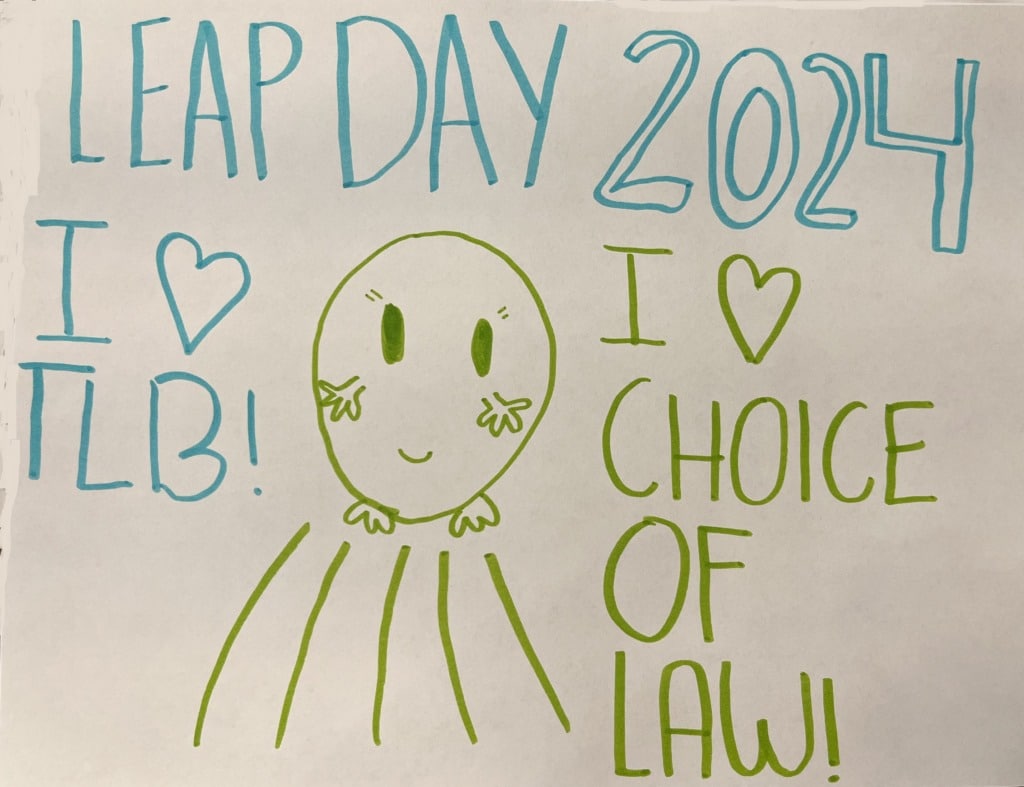D.C. Circuit Defines “Venture” Under the TVPRA
On March 5, 2024, the D.C. Circuit issued its long-awaited opinion in Doe v. Apple, a suit against U.S. tech companies seeking to hold them liable under the Trafficking Victims Protection Reauthorization Act (TVPRA) for forced labor and human trafficking used to mine cobalt in the Democratic Republic of the Congo (DRC). (Disclosure: I joined…
Continue ReadingNinth Circuit Creates Split on Serving Motion to Confirm Arbitration Award
How does one serve process to confirm an arbitral award on parties outside the United States? The answer turns out to be quite complicated. In Voltage Pictures LLC v. Gussi S.A. de C.V., the Ninth Circuit charted a careful path through the maze of interactions between the Federal Arbitration Act (“FAA”) and the Federal Rules…
Continue ReadingDoes the CISG Apply to Parties Based in Taiwan?
The complexity of Taiwan’s status under public international law may help to explain why there has been close to no discussion of its status under the Convention on Contracts for the International Sale of Goods (CISG). This absence of discussion is surprising given Taiwan’s importance in international trade: Taiwan is among the ten leading trade…
Continue ReadingSecond Circuit Hears Halkbank Oral Argument
On February 28, 2024, the Second Circuit heard oral argument in United States v. Turkiye Halk Bankasi A.S. From the judges’ questions—which admittedly came almost exclusively from Judge Bianco—the panel seems likely to hold that Halkbank, a Turkish state-owned bank, is not immune under federal common law from criminal prosecution for violating U.S. sanctions on Iran. That…
Continue ReadingChoice of Law in the American Courts in 2023
The thirty-seventh annual survey on choice of law in the American courts is now available on SSRN. The survey covers significant cases decided in 2023 on choice of law, party autonomy, extraterritoriality, international human rights, foreign sovereign immunity, adjudicative jurisdiction, and the recognition and enforcement of foreign judgments. So, on this leap day, we thought…
Continue ReadingAn Answer to the Billion-Dollar Choice-of-Law Question
On February 20, 2024, the New York Court of Appeals handed down its opinion in Petróleos de Venezuela S.A. v. MUFG Union Bank, N.A. The issue presented—which I described in a previous post as the billion-dollar choice-of-law question—was whether a court sitting in New York should apply the law of New York or the law…
Continue ReadingWhat Does Customary International Law Say About Halkbank’s Immunity?
Tomorrow, the Second Circuit will hear argument in United States v. Turkiye Halk Bankasi A.S. to consider whether Halkbank, a Turkish state-owned bank (but not its central bank), is immune from criminal prosecution for violating U.S. sanctions on Iran. Halkbank claimed immunity under both the Foreign Sovereign Immunities Act (FSIA) and federal common law. The U.S….
Continue ReadingU.S. Supreme Court Decides Great Lakes
On February 21, 2024, the U.S. Supreme Court handed down its decision in Great Lakes Insurance SE v. Raiders Retreat Realty Company, LLC. The question presented was whether, under federal admiralty law, a choice-of-law clause in a maritime contract can be rendered unenforceable if enforcement is contrary to the “strong public policy” of the state…
Continue ReadingMexico’s Lawsuit against U.S. Gun Makers Opens a New Front in the War Against Firearm Industry Immunity
In 2021, the Government of Mexico filed a lawsuit against U.S. firearm manufacturers demanding $10 billion in damages for the industry’s role in facilitating illegal cross-border gun trafficking and seeking injunctive relief to change the way gun makers do business. Mexico’s lawsuit had to confront the industry’s notorious federal immunity shield—the Protection of Lawful Commerce…
Continue ReadingThird Circuit Clarifies Comity Abstention Test
The Third Circuit recently clarified the appropriate test for deferring to foreign bankruptcy proceedings. The court’s opinion in Vertiv, Inc. v. Wayne Burt PTE, Ltd. is clear, correct, and helpful in disambiguating the different contexts in which other federal courts have referred to “international comity abstention” and adjudicatory comity. The Facts In January 2020, Vertiv,…
Continue Reading






